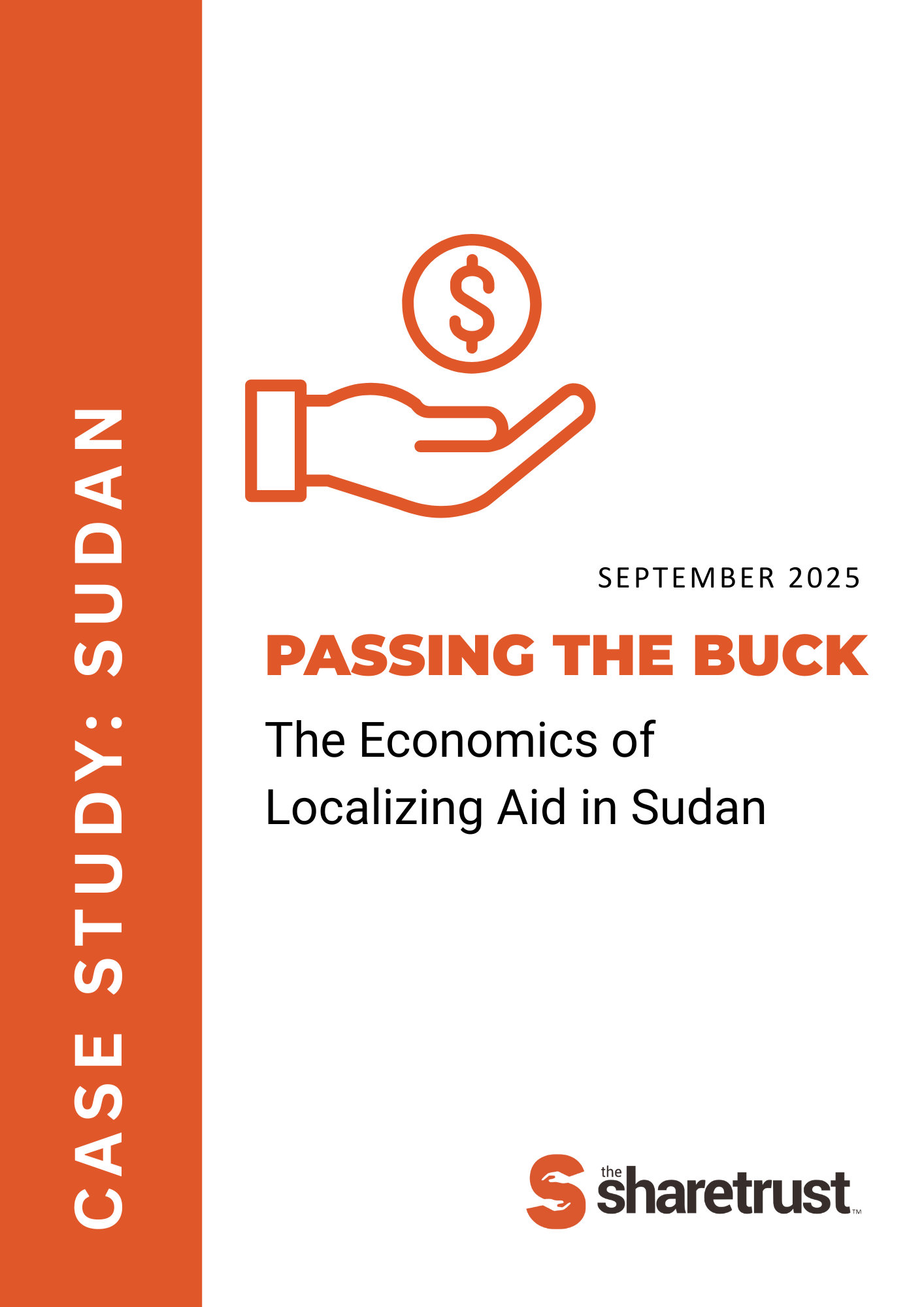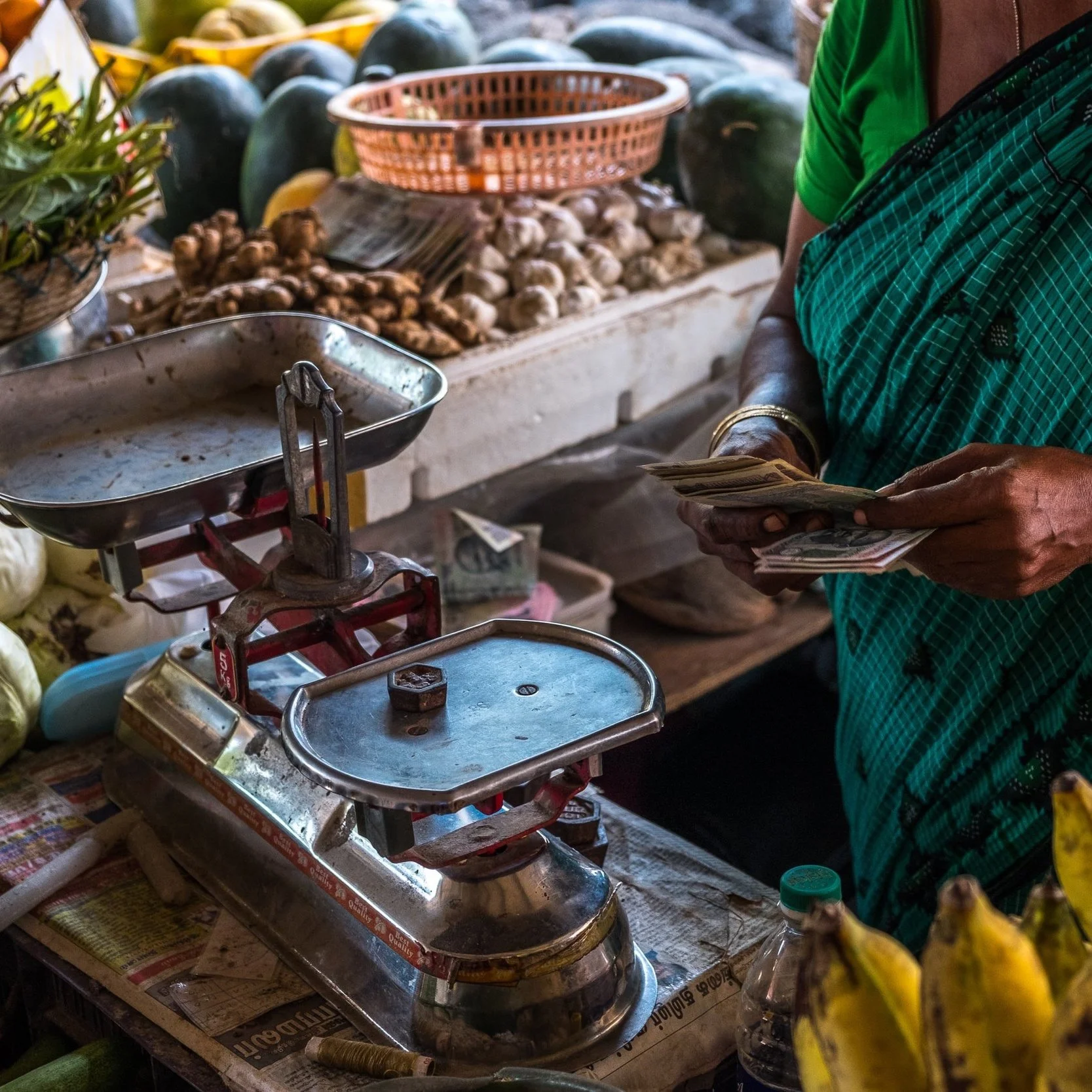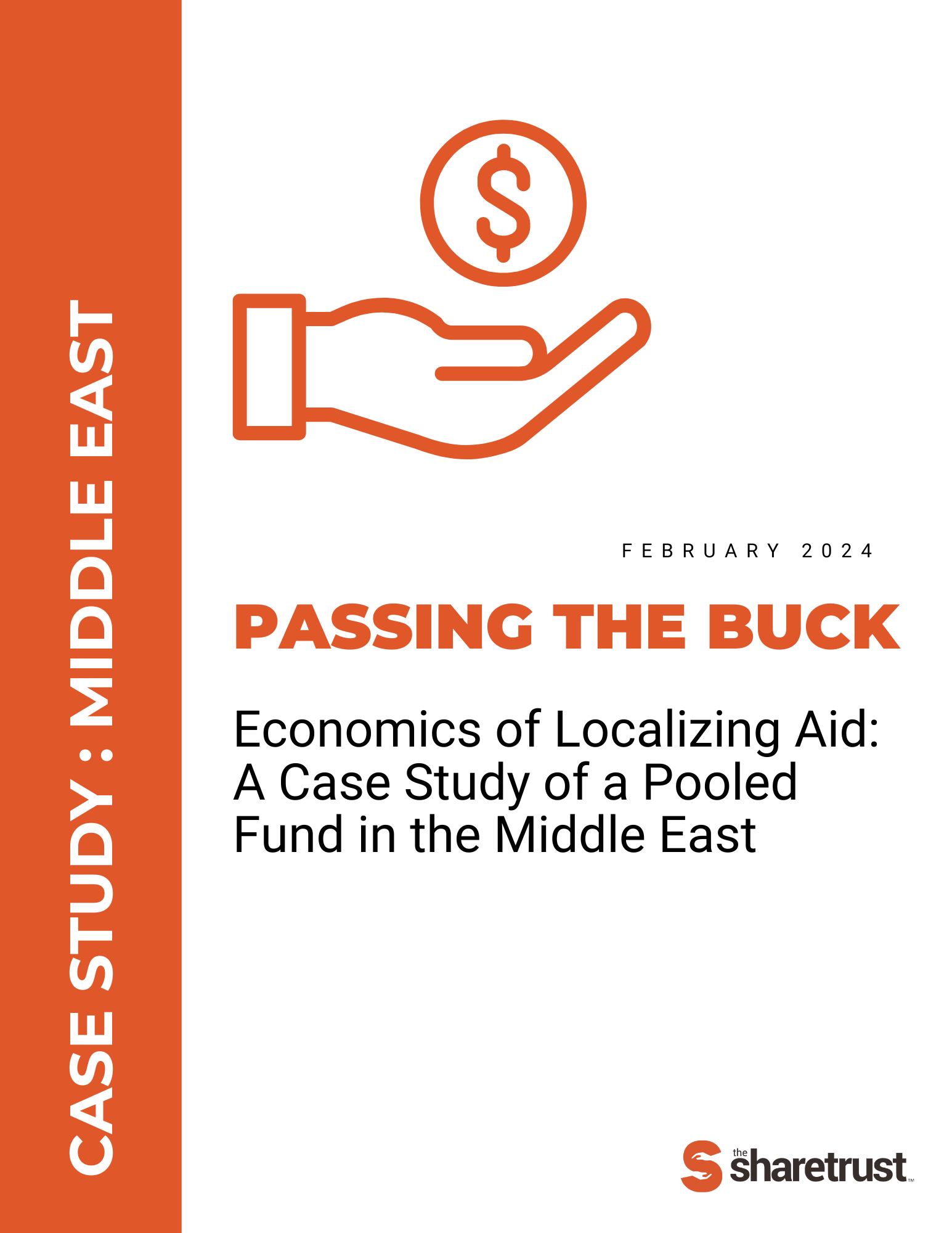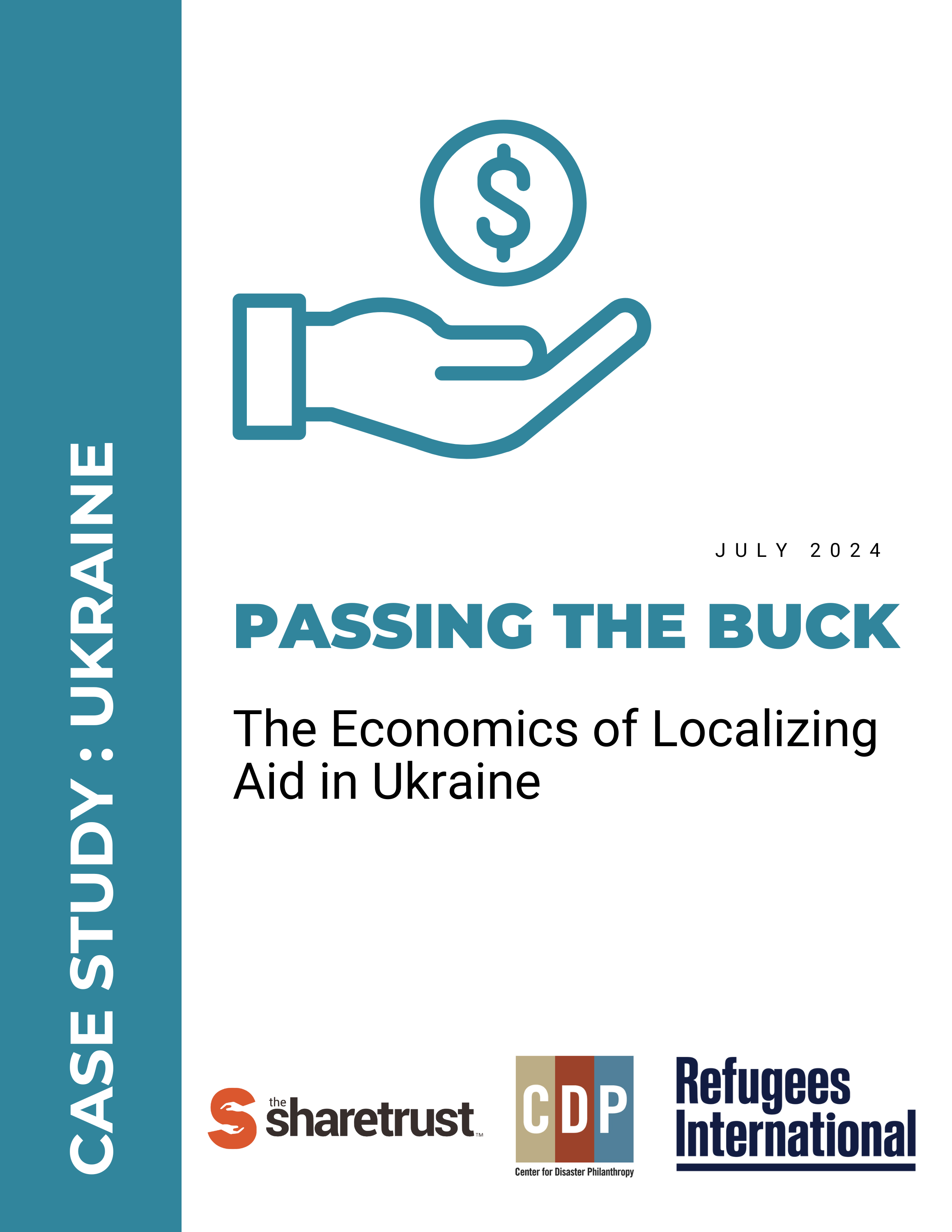Passing the Buck: The Economics of Localizing International Aid
Passing the Buck: the Economics of Localizing Aid in Sudan
The Share Trust analyzed a sample of the Sudan Humanitarian Fund’s project budgets using the same cost-efficiency methodology developed in Passing the Buck. The findings reveal that channeling funding through local organizations—rather than international partners—could yield average cost efficiencies of 12%. If just 25% of Sudan’s humanitarian funding for 2023/24 were redirected to local actors, it could unlock an estimated $118 million in savings—enough to reach an additional 1.2 million people with lifesaving support.
Passing the Buck: The Economics Of Localizing Aid
A study by the Share Trust and the Warande Advisory Centre estimates the economic implications of shifting 25% of Official Development Assistance (ODA) - aligned with Grand Bargain and USAID commitments - from international to local intermediary structures.
The analysis estimates that local intermediaries could deliver programming that is 32% more cost efficient than international intermediaries, by reducing layers of expenditure on international staff costs and indirect or overhead costs. Applied to the ODA funding flows allocated to UN/INGOs in 2018 ($54bn), this would equate to US$4.3bn annually. The shift in funding is modeled using equitable rates, rather than business-as-usual rates which currently impede local actors from meeting the needs of their communities, resulting in an additional redeployment of $680m per year in salary and overhead costs to local actors.
The report also outlines a possible transition fund to help with this 25% shift over the course of 8 years.
Local intermediaries could deliver programming that is 32% more cost efficient than international intermediaries, by stripping out inflated international overhead and salary costs.
Passing the Buck: Case Study of a Pooled Fund in the Middle East
The Share Trust completed a detailed analysis of a $80 million Alternative Pooled Fund model in the Middle East, applying the same cost-efficiency analysis model from Passing the Buck. This analysis finds that redeploying funds from an international partner to a local partner would result in cost efficiencies of 13.6% on salaries and overheads alone, realizing $545,000 in savings that can be used to deliver against unmet humanitarian needs.
Passing the Buck: the Economics of Localizing Aid in Ukraine
Amid the ongoing war in Ukraine, it is crucial to shift humanitarian leadership and resources to local responders. Currently, only 0.07% of funding in Ukraine reaches local actors. The Share Trust conducted a detailed analysis on the cost efficiency of funding local intermediaries, revealing that local intermediaries deliver programs 15.5% more cost-efficiently than international counterparts, based on actual project data representing 30% of total funding through the CBPF. This analysis is based on a representative sample of budgets from the UNOCHA Country Based Pooled Fund (CBPF) for 2023, covering funding across UN, INGOs, and LNGOs. Over the past year and a half, the Ukraine Humanitarian Fund (UHF)—the world's largest pooled fund at $181.2 million in 2023—has made notable progress in reallocating resources and leadership to Ukrainian responders.
Passing the Buck: the Economics of Localizing Aid in Nigeria
North East Nigeria faces significant humanitarian challenges, primarily driven by conflict, displacement, food insecurity, and limited access to basic services. Local organizations are uniquely positioned to support ongoing efforts to address community needs. The Share Trust conducted a detailed analysis, supported by UNOCHA, and examined the cost efficiency of localizing aid in Nigeria. An evaluation of program budgets from the Nigeria Humanitarian Fund (NHF), shows local organizations can deliver aid 18.9% more cost-efficiently than international organizations by reducing overhead and salary costs. Shifting 25% of Nigeria’s humanitarian funding to local actors could save $30.4 million per year.






